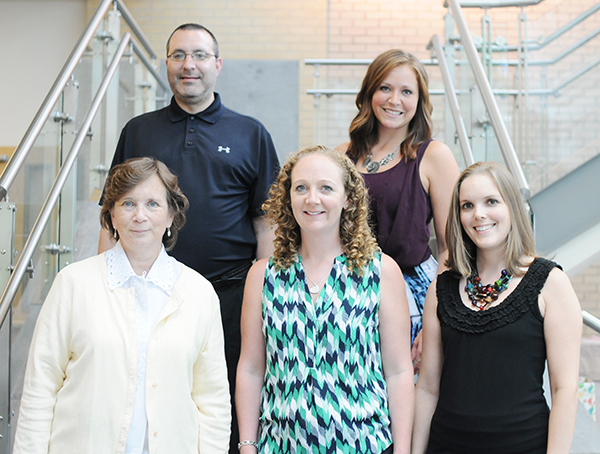News
‘High Impact Practices’ Translate to Student Success
08/22/16
 What if a student who’s never travelled beyond the state line had the opportunity to study abroad in Europe or China? How is learning enhanced for the student who interns with a local business or non-profit? What about the science student who performs original research under the watchful eye of a faculty mentor?
What if a student who’s never travelled beyond the state line had the opportunity to study abroad in Europe or China? How is learning enhanced for the student who interns with a local business or non-profit? What about the science student who performs original research under the watchful eye of a faculty mentor?
These “high impact practices” serve to engage students in profound ways and provide an enriched college experience, and they are being embraced at a new level by Dalton State faculty and administration.
Five Dalton State faculty and staff members recently attended the Association of American Colleges and Universities’ High Impact Practices Institute on the campus at UCLA. Dalton State was one of 36 schools selected in a highly competitive process to participate in the prestigious institute. Representing the College were Dr. Marina Smitherman, associate professor of biology and director of the Center for Academic Excellence; Dr. Brian Hibbs, assistant professor of Spanish; Elizabeth Lucht, assistant professor of biology; Stephani Womack, assistant director of orientation and family programs and interim assistant director for career and professional development, and Dr. Barbara Tucker, chair of the Department of Communication and a professor of communication.
The group returned from Los Angeles with an ambitious plan to phase in multiple high impact practices over the next four years to ensure most graduates experience at least two of them during their time at Dalton State. The team selected service learning, internships, undergraduate research, and study abroad as the practices on which they would focus.
“I am extremely proud of and excited about the hard work this dedicated team devoted to developing this innovative and strategic action plan,” said Smitherman who has spearheaded the movement toward implementing high impact practices at Dalton State. “This plan encourages collaboration between Dalton State personnel as well as local community organizations and business partners in an effort to shape the excellence of our students into productive global citizens.
“These practices require high levels of effort, reflection, and interaction with faculty,” she said. “Research has also shown the high impact practices to be especially effective with underserved populations” which represents the majority of Dalton State students.
Dalton State’s commitment to expanding and enriching high impact practices coincides with Georgia joining the AAC&U’s Liberal Education and America’s Promise program, a national advocacy and campus action initiative just last month. Georgia is the nation’s 13th LEAP state.
“LEAP champions the importance of a 21st century liberal education – for individual students and for a nation dependent on economic creativity and democratic vitality,” said Tucker. Dalton State committed to the LEAP initiative last spring with a positive vote by faculty and staff.
“Both the LEAP initiative and the high impact practices help us achieve the goals of student success and academic excellence set forth in the College’s three-year strategic plan,” said Dalton State President Margaret Venable.
